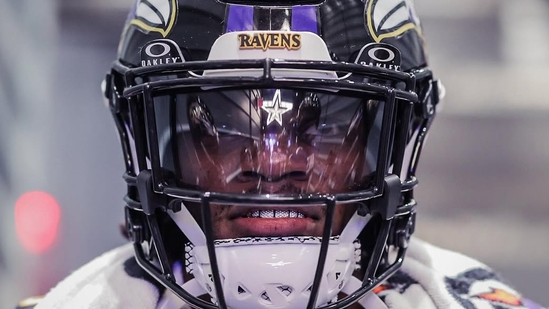In a powerful and emotionally charged appearance on ESPN’s First Take, former NFL star and analyst Ryan Clark dropped what may be the most compelling challenge of Lamar Jackson’s career — and it has nothing to do with stats, MVPs, or highlight reels. According to Clark, Jackson winning a Super Bowl wouldn’t just elevate his career; it would elevate the entire legacy of Black quarterbacks in the NFL.
“This is the evolution of the position,” Clark began, while speaking directly to Jackson on the show. “I wanna say it to you and I want to say it to Randall Cunningham and I want to say it to Russell Wilson and I want to say it to Michael Vick… Without Randall Cunningham having to try to conform and be a pocket passer and also show his athleticism, we don’t get to Michael Vick. Without Michael Vick accepting that and working to become a better passer and better leader, we don’t get a Cam Newton. If Cam Newton doesn’t bring the style of play that he had the opportunity to bring from Auburn to the NFL and win an MVP doing it, we don’t have a Lamar Jackson.”
Clark wasn’t just paying tribute. He was laying down the gauntlet. “And that’s why we need Lamar Jackson to take that next step and hold that Lombardi trophy the same way we all cried when Doug Williams did it in the 80s,” he added.
It’s a plea from one generation to the next — a torch being passed with urgency. While Jackson is already considered one of the most electrifying talents of his era, winning the Super Bowl would do more than silence critics. It would rewrite the narrative.
Lamar Jackson, a two-time MVP winner (2019, 2023), has dazzled fans with his jaw-dropping dual-threat capabilities, making him a nightmare for defenses and a dream for highlight reels. But for all his achievements, the one accolade missing from his glittering resume is a Super Bowl ring.
In 2023, Jackson’s Baltimore Ravens came heartbreakingly close. They reached the AFC Championship Game, only to fall to eventual champions the Kansas City Chiefs. While Jackson once again proved why he’s one of the most dynamic players in the league, critics were quick to resume their questioning chorus — can his style of play really win it all?
Much of the criticism stems from Jackson’s unorthodox quarterbacking. His game doesn’t revolve solely around throwing from the pocket. Instead, he disrupts defenses with his legs just as often as with his arm — a playing style that some traditionalists still refuse to accept, despite its proven success. Yet, as Clark highlighted, Jackson’s style is not an anomaly; it is an evolution — one built on the sacrifices and breakthroughs of those before him.
That’s what makes this mission so much bigger than football. Winning the Super Bowl, Clark implies, wouldn’t just validate Jackson. It would honor the past and inspire the future — young athletes watching from the sidelines, dreaming of leading a team in a league that once doubted quarterbacks who looked like them.
The weight of expectation is no longer about proving detractors wrong; it’s about proving history right. Jackson’s journey to the top isn’t just about personal greatness — it’s about lifting generations with him.
If Jackson does indeed hoist the Lombardi Trophy, it won’t just be a win for Baltimore — it’ll be a landmark for the culture, a crescendo to a symphony that began decades ago with the likes of Cunningham and Williams.
Ryan Clark’s emotional rallying cry is clear: “Take the next step, Lamar.” The entire football world — past, present, and future — is watching.
